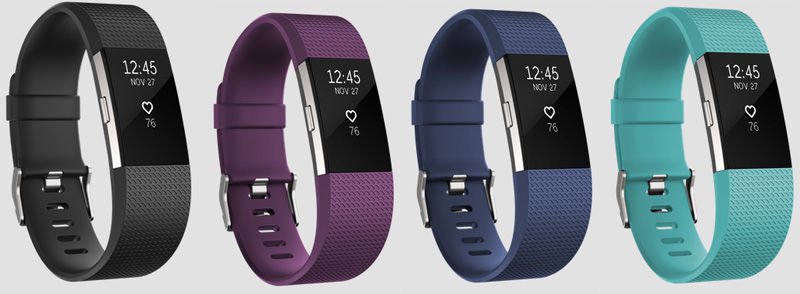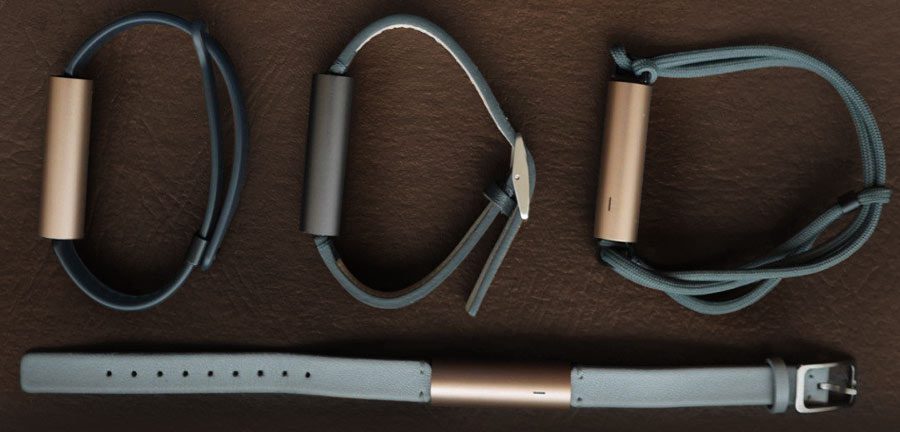![]() Over the past couple of years fitness trackers have become increasingly popular, attracting people with all sorts of activity levels. While the avid exerciser might be more interested in tracking their heart rate, mapping runs or cycle routes or seeing just how many calories they burnt in their spin class, less religiously active individuals are using them to simply encourage themselves to move more throughout the day.
Over the past couple of years fitness trackers have become increasingly popular, attracting people with all sorts of activity levels. While the avid exerciser might be more interested in tracking their heart rate, mapping runs or cycle routes or seeing just how many calories they burnt in their spin class, less religiously active individuals are using them to simply encourage themselves to move more throughout the day.
I have to admit, when the original trackers were put on the market they did seem a little like glorified pedometers, however the technology within the more recent releases and the capabilities they now contain has rapidly improved. This year has seen some of the greatest improvements yet, with some trackers being able to automatically identify when you have gone to bed, fallen asleep and become restless during the night, as well as automatically detecting different levels of activity throughout the day. Constant heart rate monitoring has also been added and many trackers now link up with your smart phone to not only relay data back to an app, but also notify you of calls, texts and calendar notifications. Sounds fab right! So that must make them a fantastic present? My verdict would be not for everyone but definitely for some.
So who might they good for?
- Anyone who thinks they may have trouble sleeping or forgets to go to bed! Looking at the sleep data taken can help you work out when and why your restless during the night. Do you sleep better when you drift off in a certain position or perhaps when you have had a longer break between dinner or exercising and hitting the hay? Different things will affect different people but one thing is for sure: a good nights sleep benefits everyone!
- Those looking to make a significant change to their health or fitness. Whether it’s weight loss, improved cardiovascular fitness or even weight gain, more recent fitness trackers will give you useful information to help you achieve your goals. Calorie expenditure measurements can ensure you eat enough or don’t eat too much. Resting heart rate recordings can help you track improvements to fitness and constant heart rate monitoring can help you to find out which activities really gets your heart pumping and ultimately benefit you the most! It must be noted however that not all measurements are 100% accurate so they should be used as a good guide but not gospel.
- Busy but inactive people who need a gentle reminder to move more! A little buzzing on the wrist can go a long way in reminding the busy office worker to get up and walk around a bit more. Lots of the apps also allow for some friendly rivalry where you can challenge friends with the same brand of fitness tracker!
Who aren’t they extremely useful for?
- Marathon runners and long distance cyclists – a more specific gps watch is likely to be much more beneficial to anyone that is very serious about long distance exercise. Some even have in built sat navs!
- Competitive athletes – unfortunately the data still lacks 100% accuracy which is what would be required for those who are taking part in sporting activities at very high levels.
- Swimmers – well mostly!! Read the specifications when buying for a swimmer as most trackers cannot be used for swimming despite being waterproof (or at least splash-proof).
- Those who have absolutely no interest in getting fit or doing any exercise (an obvious one but has to be mentioned!)
Considering all of these points, it’s clear that fitness trackers can definitely make a good present to both health and fitness freaks and coach potatoes alike, just consider why you’re buying it for someone and exactly how they will find it useful before you invest. Those questions should play a strong role in deciding which one to go for too.
So if reading this has filled you with inspiration to buy a loved one a fitness tracker for christmas (or perhaps even treat yourself), then here are three models that the industry love with a little overview of their perks and downfalls!
Jawbone UP3- Price £70 (avg)

- Rather stylish and lots of good colours to choose from
- Splashproof (but not waterproof – couldn’t swim with it)
- Automatic sleep tracking (claimed to be the most accurate)
- Fantastic associated smart phone app – you can track mood, food, weight and has a smart coach feature which gives handy pieces of advice related to your activity
- Constant heart rate monitoring as well as passive & resting HR measurements to show changes to general health
- No screen on the watch itself so can only view measurements by opening the app
- Some reviews say that it falls off easily however Jawbone have claimed to have fixed this issue by improving the clasp
- No in built GPS, distance tracking thought to be inaccurate.
FitBit Charge 2 – Price £120 (avg)

- 4 different coloured straps available and can be changed easily
- Comprehensive screen with lots of information displayed including constant heart rate monitoring
- It has an auto activity tracker but user can also set the tracking going specific to activity using the touch screen
- Other features on the watch itself include relaxing breathing sessions and a stopwatch
- Automatic sleep monitoring plus ability to set a bedtime alarm and gentle wake up silent alarms
- The app is really useful, it gives information about what your results mean and can also log food and water.
- No inbuilt gps so you have to take phone with you if using for outdoor exercise.
- Can be quite chunky on small wrists – not the most fashionable of fitness trackers.
- Reliability of heart rate monitoring during intense workouts has been questioned.
Misfit Ray – Price £50 (avg)

- Lots of colours to choose from as well as different materials and arguably the most stylish of all trackers
- Automatically tracks sleep
- Can be used for swimming!
- Distance tracker thought to be very accurate
- User friendly app which displays data and tells you how much more activity you need to do to achieve you goal
- Non-rechargeable but the batteries should last up to 6 months
- No screen so data can only be viewed through the app.
